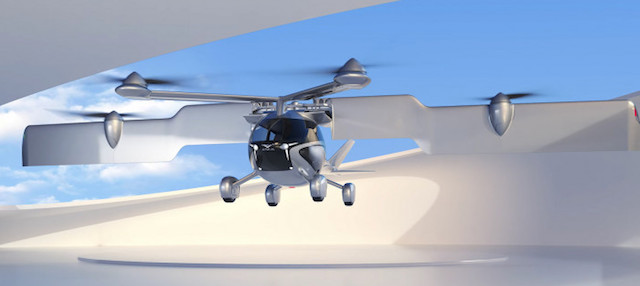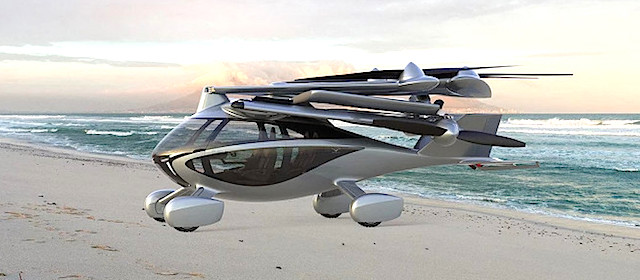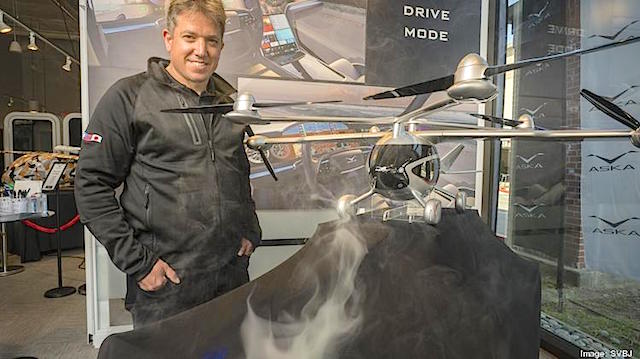
A startup company in California is planning to build limited-edition models of a four-seater flying car, each one costing around NZ$1.1million, including pilot training.
And it is already taking deposits of NZ$7000, held in trust by a third party and refundable if the project doesn’t get off the ground.
The deposit gets you one share of the company’s stock, admittance to status update meetings every three to six months, and a place at the head of the line for a planned 1500 models.
The company, NFT, has opened a Tesla-like showroom (see video below) to tout the car it calls the ‘Aska’, Japanese for ‘flying bird’. It expects to have the first production example by 2026.
NFT first showed a scale model of Aska in 2019. It says a production model would be about the size of a large SUV and able to drive on conventional roads to and from takeoff and landing sites.
It has folding wings, a 240km/h top speed, a 400km range, six propellers powered by six batteries, and dual aviation-fuel motors to keep those batteries charged. In-wheel electric motors propel it on roads.
Aska needs a square patch measuring 20m on all sides to take off or land, but a conventional runway takeoff takes 30 per cent less power and increases flight range. The company plans to start test flights of full-scale aircraft next year.
NFT’s showroom is in Los Altos, in California’s Silicon Valley. That’s close to tech giants, like Apple, Google, Facebook, who have the money and curiosity for something like the Aska.
“They’ve seen everything already, but this is something new. They want to be part of it,” said NFT chief executive Guy Kaplinsky (above).
Kaplinsky and his wife Maki Kaplinsky, also NFT’s chief operating officer, believe people will buy Askas once they realise they can combine an expensive flying car with an aerial commute to a vastly cheaper house far away from urban centers.
“A $500,000 house and our vehicle is still cheaper than an apartment in the city,” Kaplinksy said.
NFT is among several US companies – General Motors, Boeing among them – hoping to shake up transportation with new flight technology. Analysts say spending on flying taxis alone should grow to NZ$20 billion by 2041.
The companies face daunting challenges – safety, cost, regulations, and airspace management, for example – but if they succeed, they could bring a Jetsons-like sci-fi dream to the world.


